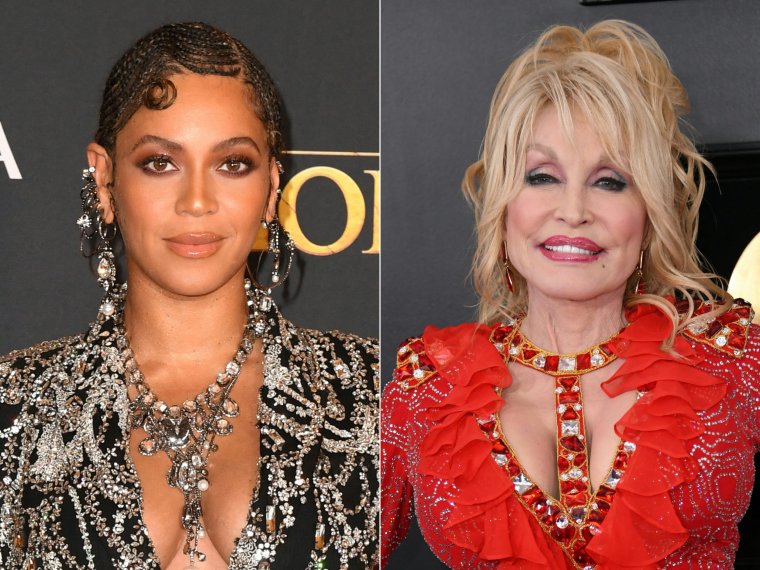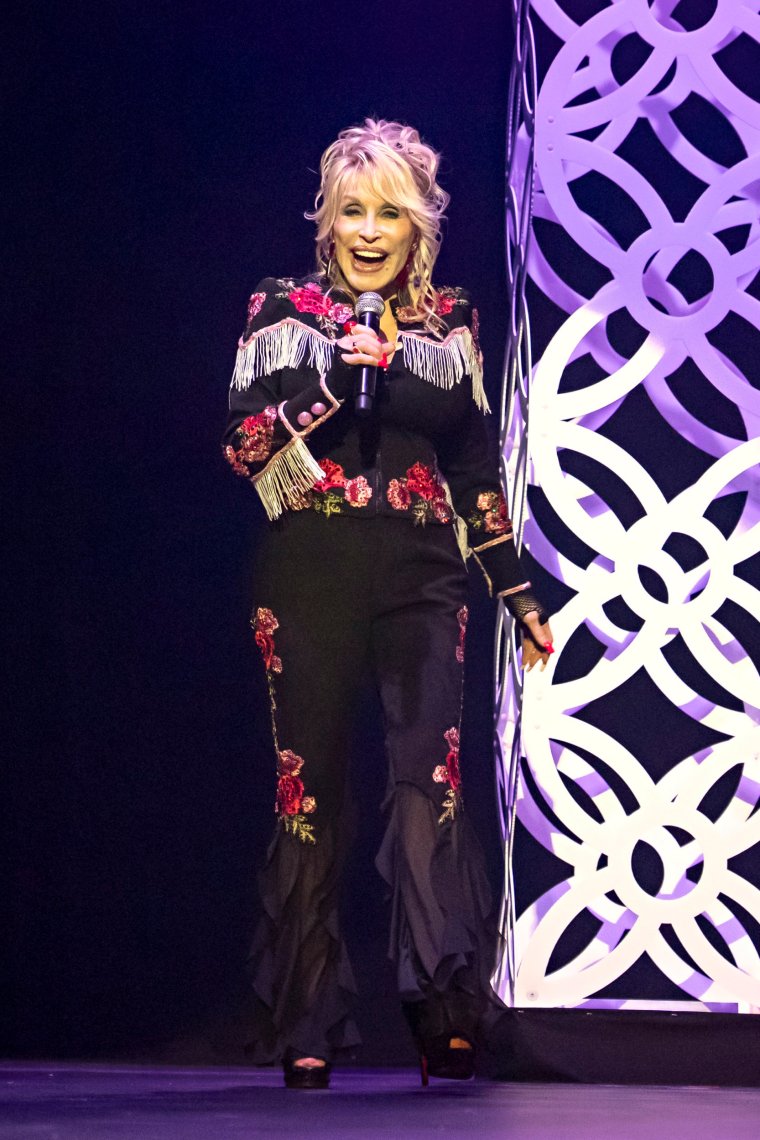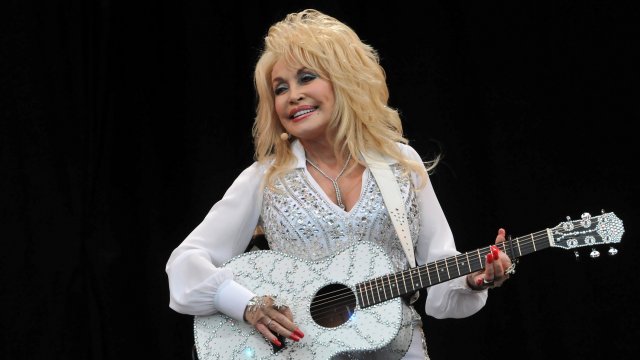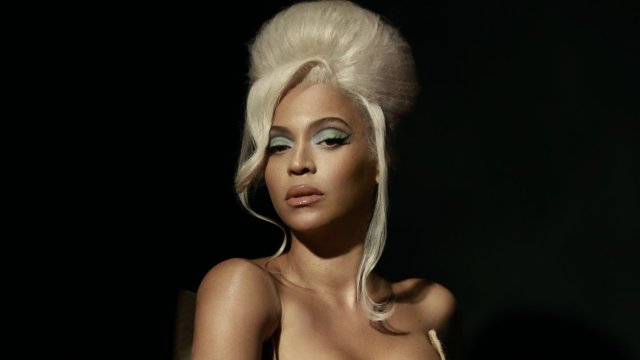In the late 60s, Dolly Parton was appearing in a weekly TV show with her then stage partner Porter Wagoner when an eight-year-old girl came up and asked for her autograph. Parton, who always made a point of staying behind after broadcasts to meet the audience, asked the girl her name. “Jolene,” came the reply. “That’s a beautiful name,” Parton told her. “If you ever hear a song with that name, you’ll know I got it from you.”
And so it was several years later, Parton was writing a song inspired by a bank clerk she had seen eyeing up her husband, Carl. She needed a two-syllable name for the emerald-eyed, flame-haired temptress whose “beauty is beyond compare” and who poses a threat to her marital bliss, and Jolene was a perfect fit. The title track of her 1974 album, “Jolene” would transform Parton’s career. Not only did the single go to No 1 in the country music charts, but it became a crossover success as it climbed the pop charts (it went to No 7 in the UK). The song gave her the push she needed to finally leave The Porter Wagoner Show and claim the artistic and financial freedom she had long craved.
As well as being Parton’s biggest hit, “Jolene” is her most covered, something you’d think would give pause to artists looking for songs to mix up their repertoire. But last month, Parton revealed that Beyoncé – who in January became the first black woman to have a No 1 song on Billboard’s country chart with “Texas Hold ‘Em” – was covering “Jolene” on her forthcoming album Cowboy Carter. Parton has talked before of how she hoped Beyoncé would sing it, telling Trevor Noah in 2022 she wanted it covered “in just a big way, kind of like how Whitney [Houston] did my ‘I Will Always Love You’, just someone that can take my little songs and make them like powerhouses. That would be a marvellous day in my life if she ever does ‘Jolene’.”
In the event, Beyoncé’s “Jolene” features an introduction from Parton herself, where she references “the hussy with the good hair you sing about”, by which she means Becky, the love rival in Beyoncé’s 2016 song “Sorry”. On Beyoncé’s cover, the melody remains broadly the same, but the singer has switched up the lyrics: she is not “begging” but “warning” Jolene to stay away and not “come between a family and a happy man”. Her tone is less pleading and more “You just try it, lady”: “Jolene I know I’m a queen, Jolene/ I’m still a Creole banjee bitch from Louisianne.”

“Jolene” has already enjoyed a rich and varied life independent of its creator, transcending its stripped-back beginnings with excursions into disco (courtesy of Olivia Newton-John), screechy blues-rock (The White Stripes), South African bluegrass (Congo Cowboys), cumbia (Chiquis Rivera and Becky G) and goth-rock (Sisters of Mercy). Parton’s goddaughter Miley Cyrus performed a version that cleaved to its country roots, as did rapper Lil’ Nas X, who performed the song on Radio 1’s Live Lounge. There’s also a sweet lyrical nod to “Jolene” on Brit Awards darling Raye’s “Natalie Don’t”: “Like Dolly begged Jolene/ Just cause you can don’t take him please.”
So what is it about “Jolene” that strikes a chord? There’s the looped acoustic guitar line, set in a minor key, which one Rolling Stone reviewer noted as having a “sense of accelerated dread”, and the simple melody and harmonies that recall the old-time folk on which the Tennessee-born Parton was raised. But it’s also the palpable heartache and bruised vulnerability shown by the narrator. She isn’t seeing off her love rival with threats and fury; rather she is pleading and appealing to her humanity. “My happiness depends on you and whatever you decide to do, Jolene,” she beseeches.
Lately, “Jolene” has found a new audience on TikTok through videos in which Gen-Zers listen to classic records for the first time and share their (usually astonished) thoughts. Amid the scores of “Jolene” reaction videos, common responses include “Don’t take him, Jolene, don’t do it!” and “Dolly, don’t you EVER think you can’t compete with any woman out there.” But not everyone has sided with Parton’s narrator in her efforts to keep her man. In 2018, rapper Stormzy tweeted his own analysis of the song, in which he expressed a wish that Parton had “more self-love and confidence or the strength to just leave my man cah it ain’t really Jolene’s fault.”
If the various efforts to re-write the song are anything to go on, Stormzy isn’t alone in sympathising with Jolene. Kirsty MacColl’s “Caroline”, from 1995, was written from the point of view of Jolene – the Caroline of the title is the jilted wife – who is wracked with guilt at being the other woman: “Now I lie here with you, can’t get her out of my head / Do you think she knows that you share my bed.” The album Answer Ballads, curated by David Rotheray of The Beautiful South, features the mournful “Jolene’s Song”, sung by Julie Murphy, which opens with the words “I don’t want him. I don’t want anyone.” And Ray LaMontayne’s “Jolene” overwrites Parton’s version entirely with the tale of a man who “needs something he can hold on to/ Nine pound hammer or a girl like you.”

But are we in danger of taking Parton and her song too literally? Her narrator isn’t interested in Jolene’s backstory and she certainly isn’t asking for advice. We know from Parton that “Jolene” was inspired by a flirty glance from a bank teller, though the rest – her husband crying out Jolene’s name in his sleep, for instance – is pure embellishment. Certainly, Stormzy’s characterisation of Dolly as a doormat is hard to reconcile with the woman who grew up with nothing and built a multimillion-dollar empire taking in records, books, hotels, fragrances and a theme park.
Plus, Parton has form when it comes to telling tall tales for entertainment purposes. In 1977, when introducing “Jolene” in concert, she said: “This is about a woman who tried to steal my man. She pulled my wig off and almost beat me to death with it. I fought that woman like a wildcat. I had another wig, but I didn’t want another man.” On another occasion, she laughingly described it as a song “about this little redhead girl that was trying to steal my husband. Years went by, and now I wish to hell she had!”
Despite the many versions by other artists – there are estimated to be 70 – Parton has never let go of “Jolene”. In 2017, she recorded it with the a cappella group Pentatonix, and earned a ninth Grammy for her efforts. The following year she made a string version for the soundtrack of the movie Dumplin’. Her most recent “Jolene” came out just last year in an amusingly overwrought duet with Italian Eurovision winners Måneskin.
That Beyoncé has chosen to cover this endlessly dissected, reinterpreted and rerecorded song is testament to its emotional punch and intrinsic timelessness. Fifty years after the world first met her, “Jolene” lives on, shattering hearts in her wake.















